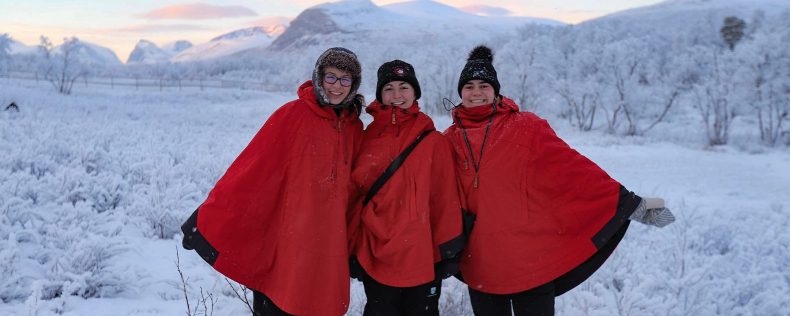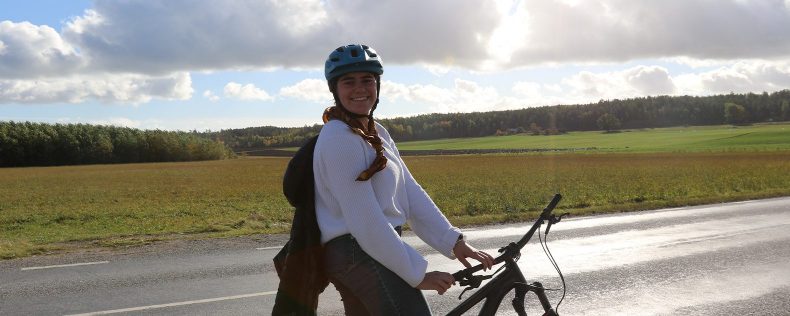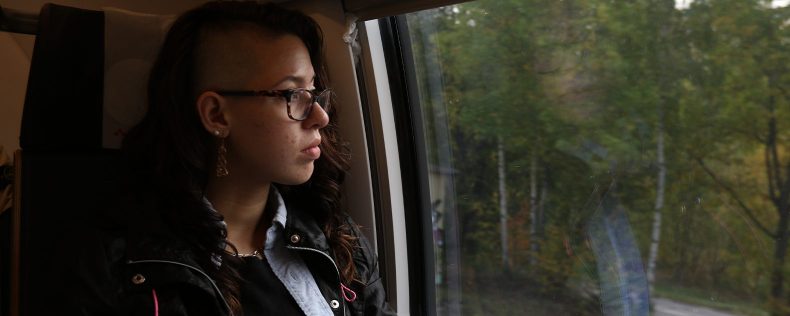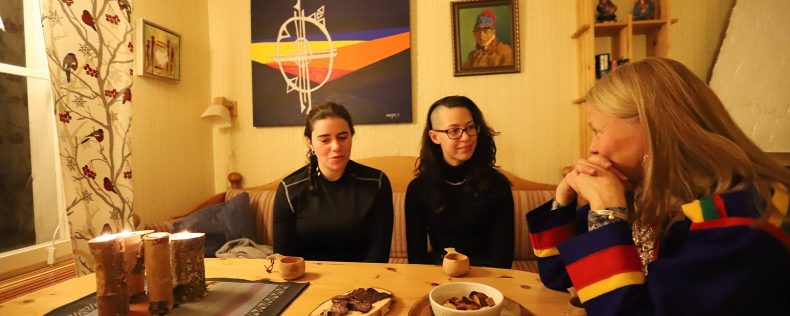Apply to Become a DIS Slow Traveler
What is slow travel?
Studying abroad can sometimes lead people to feel like they need to race in ticking off as many destinations as possible in their time abroad, leading to short weekend trips and whirlwind, city-hopping Study Breaks. Slow travel is an approach that fights against the checklist mentality. Slow travel encourages people to step back and adopt a ‘slow’ mindset as they enjoy the journey, not just the destination. It is a way to travel deep instead of wide, to connect with the local people and culture, to be more present in the moment, and to create more impactful and memorable travel experiences, all while also making more sustainable choices for those communities and for the environment.
What does it mean to be a DIS Slow Traveler?
As a DIS Slow Traveler, you will be an ambassador for sustainable travel. You will propose a slow travel concept and receive funding to help you engage in more sustainable, intentional travel activities during your journey. During and after your travel, you will document and share your experiences through creative writing, photography, and videography in collaboration with the DIS Marketing and Communications department.
Who are we looking for?
- We require that you are mature, independent, and passionate about sustainability and travel
- You are a storyteller and have skills in creative content creation – such as writing, photography, and videography
- You are curious, reflective, and excited to travel ‘deep’ instead of ‘wide’ by engaging with the local culture of a specific location and with aspects of sustainability
- DIS Slow Travelers are interested in building their resumé and gaining skills as storytellers by working with the Marketing and Communications department. At the end of the semester, you can request a letter of recommendation or a recommendation on LinkedIn
What are we looking for in an application?
- The more specific and detailed you are with your application, the better. We are seeking students who have a strong vision of what their slow travel might look like. Things can change down the road, but we want you to have a thoughtful and practical plan
- The strongest applications center around a particular theme or experience that is relevant to you, the traveler(s). Tell us why you want to do this and what it will mean to you
- No overly-packed schedules. Slow travel is about slowing down, being open to spontaneous experiences, and engaging deeply. Don’t try to cram too much into your plans
What will you reflect on?
All DIS Slow Traveler itineraries should draw on a few aspects of the five components of slow travel listed below. There can be a lot of overlap between the five components, but these are some cornerstones that we think make up a slow, intentional, and sustainable way to travel. We are looking for your real stories of how you engage with these topics during your trips. We want you to relay what it is like to travel intentionally and with sustainability on top of mind.
Here are our five components of slow travel and some possible story focuses that could fall under each.
- Greener transport: Think about your modes(s) of transportation and reflect on your journey to and from your destination. How does slowing down affect the experience of travel? And what is the carbon impact for different forms of transit?
- Mindful consumption: Your choices of meals, accommodations, and other purchases; what is the story behind the products you consume and how can we make more mindful and sustainable choices in our everyday lives? You might consider plant-based foods, purchasing used goods and participating in a circular economy, and choosing your accommodation based on carbon impact
- Support for local businesses: How can we make sure that our travel supports local economies and residents? How can you find and engage with local markets, artisans, or shops to ensure tourism is financially sustainable for the communities we visit? What do these businesses mean to their community and who is working in them?
- Engagement with local culture, people, and activities: You can better understand how a community functions by learning from those who live there. You might conduct interviews with locals around a central topic for your journey, find a local guide or tourism office and ask them to help you find the real local spots instead of relying on internet searches, find and engage in cultural activities and festivals, or seek out art, food, or other cultural items from your destination
- Advocate/volunteer for sustainability and nature: Volunteer with a local organization or international groups like WWOOF, spend time hiking or camping in nature, base your travels around visits to local sustainability-minded locations and activities, or calculate carbon expenditures for your trip and create a slow-travel itinerary for future travelers
Expectations and compensation
- If selected, you will receive funding to support intentional and sustainable aspects of your travels – in return for creating engaging stories about your experiences to be shared on DIS marketing channels
- Slow Travel Funds will be released to you before your departure so that you can use them for booking. You will be asked to sign a contract with the Marketing and Communications team, promising to use these funds for slow travel as you have described
- With the ability to draw on our Study Tours department for assistance, you will be responsible for the booking of your trip, including transport, accommodation, meals, and cultural experiences. We expect you to consider low-impact ways of travelling and a balanced itinerary
- Slow Travel Funds are to be used for costs related to the five components of slow travel as listed above
- You will be trained by the Marketing and Communications department to produce creative content such as blog posts, photos, and videos. You will share your stories on the DIS blog, website, and social media
- As an ambassador for DIS, you are a resource for prospective students and may be asked to answer questions via social media
What have previous DIS Slow Travelers done?
Previous DIS Stockholm Slow Travelers have:
- Traveled to the island of Gotland
- Taken a ferry to the Åland islands to interview locals about their history and to learn about sustainable fishing practices
- Journeyed north to Kiruna to see the Northern Lights and learn about the Sámi people, the indigenous population of the Scandinavian Arctic
How to apply?
If you would like to be considered for Slow Traveler funding, submit your slow travel proposal below before 11:59pm on August 27.
The application is intentionally thorough and it should take you some time to research and create your proposal. We are happy to help where you need it, but we are looking to see that you have put a lot of thought and effort into your itinerary before applying.
You may apply as an individual or as a group, but each group member must submit their own form (please list group members in the form field below).
You will be informed if you have been selected to receive Slow Travel Funding by Monday, September 2.
If you are selected, you must attend a mandatory training session on Wednesday, September 4.
Questions? Email studentmedia@dis.dk
In order to apply for the position of Slow Traveler, simply fill out the form below.
DIS Slow Travel Funding Application
"*" indicates required fields



